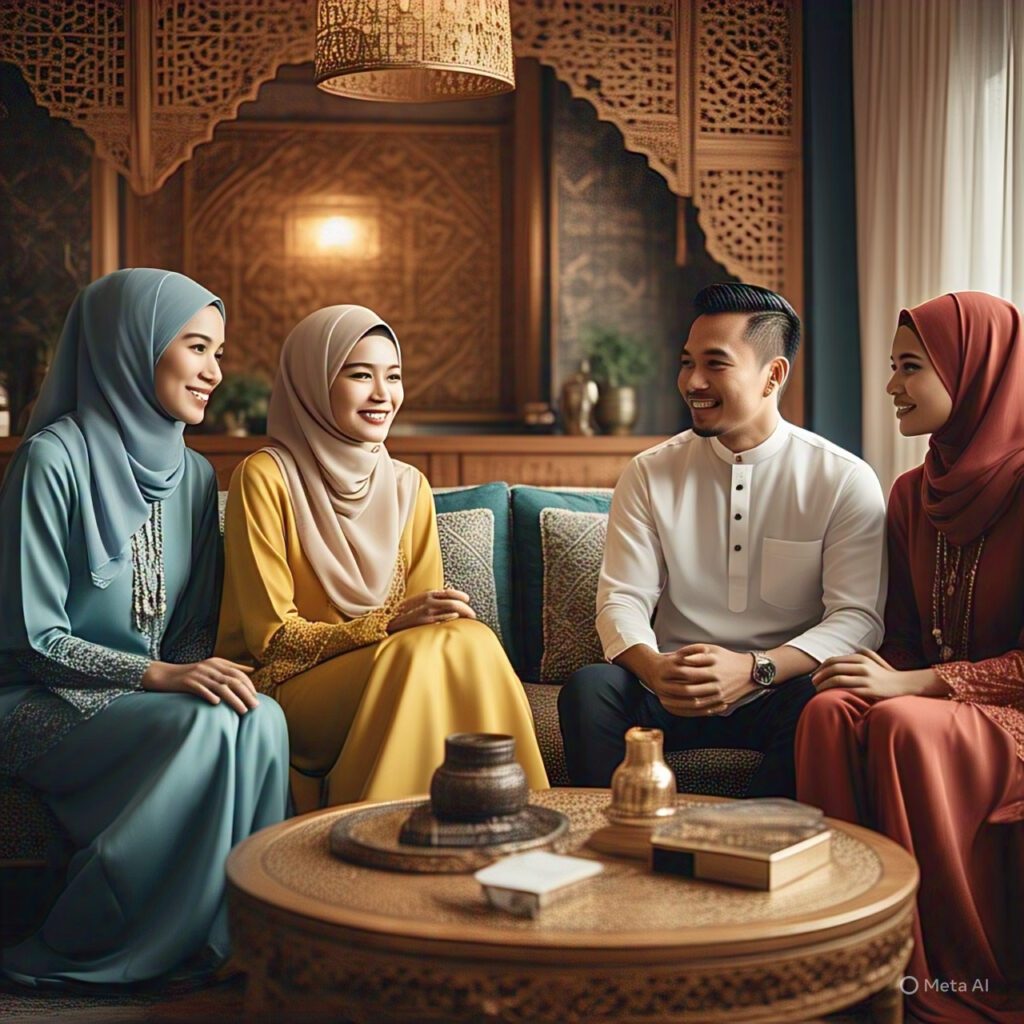The Next Most Important Woman
Many have spoken about the mother, her status, and the consequences of her tears. But there is another woman whose role carries weight in a man’s life: the wife. In Islam, she holds dignity, rights, and a position that, if violated, can impact the husband, the household, and even society. When a wife’s heartbreak is legitimate in the sight of Allah, even the blessings of a home may be lifted.
This article delves into Islamic teachings, cultural contexts, and the legal basis of polygamy. We aim to balance faith with the realities of our time, acknowledging diverse views—including among Salafi communities—while keeping the discussion grounded, respectful, and truthful.
Polygamy is often a topic that brings mixed reactions—from curiosity and confusion to support or strong opposition. While it’s allowed in Islam under certain conditions, the real question in a modern society like Singapore is: Is it necessary today?
Let’s explore the religious basis, Singapore’s legal framework, and why polygamy is generally considered unnecessary here—except in rare, serious cases.
What Does Islam Say About Polygamy?
A Historical Context
Polygamy in Islam was permitted during a time when war, poverty, and disease left many women widowed or without support. It was a solution for a broken society—not a lifestyle trend.
In Surah An-Nisa (4:3), the Qur’an allows men to marry up to four wives, but it comes with a heavy condition:
“But if you fear that you will not be just, then [marry only] one.“
This verse wasn’t meant to promote polygamy. It was a restriction, not an open invitation.
The Reality in Singapore
A Developed and Balanced Society
Singapore today is a different world from 7th-century Arabia. It’s a stable, developed country with equal rights for men and women. We don’t face a gender imbalance, post-war devastation, or societal collapse that once made polygamy a form of social care.
In fact, women in Singapore are:
- Highly educated
- Financially independent
- Protected by strong legal systems
There’s no pressing need for men to “support” multiple women through marriage.
Is Polygamy Allowed in Singapore?
Yes—But Only in Special Cases
Polygamy is legal for Muslims in Singapore but tightly regulated by the Syariah Court. You can’t just marry another woman because you feel like it.
A man must apply and meet strict requirements, such as:
- Demonstrating financial stability
- Proving the ability to treat all wives equally and justly
- Presenting a valid reason, such as:
- The first wife is ill or unable to fulfill marital obligations
- Infertility and a mutual desire for children
- Emotional or psychological grounds, supported by counseling
Even then, approval is not guaranteed.
Does the First Wife Need to Say Yes?
Technically No, But Practically Yes
This is where many people get confused. Under Singapore law, the first wife’s consent is not legally required in writing for the court to approve a second marriage. However, her opinion is absolutely taken into account.
Here’s what usually happens:
- The husband files an application for polygamy.
- The first wife is called to the Syariah Court.
- She can share her objections, concerns, or support.
- The court evaluates whether justice can truly be upheld.
In reality, if the first wife strongly objects and presents solid reasons, the court is unlikely to grant approval. So while it’s not a legal “yes or no” from her, it often works that way in practice.
The Emotional and Social Cost of Polygamy
While Islam permits polygamy, it doesn’t mean it’s the right choice for everyone—or even most people.
Polygamy can lead to:
- Jealousy and emotional pain
- Breakdown of trust
- Family disputes
- Financial burden
- Neglect of children or spouse
Islam places immense responsibility on the husband to be just. If he fails, he will be held accountable by both the court and ultimately, by Allah.
“You will never be able to be just between wives, even if you should strive to do so.” — Surah An-Nisa (4:129)
This verse isn’t discouraging justice—it’s reminding us that true fairness is almost impossible, making polygamy something to be approached with extreme caution.
So, Is Polygamy Necessary in Singapore?
In most cases, no.
Singapore offers:
- Equal opportunities for both genders
- Social support systems
- Legal protection for women and children
- Financial independence for many women
These factors mean there’s no social crisis that polygamy needs to solve. Most Muslim marriages in Singapore are—and should remain—monogamous. It’s more aligned with modern realities and the Qur’an’s broader values of justice, mercy, and compassion.
When Might It Be Justified?
In rare situations, polygamy could still be relevant, such as:
- A wife is chronically ill and unable to maintain the marital relationship.
- The couple agrees due to fertility challenges and mutual understanding.
- The husband shows clear financial and emotional capacity to handle both families without harm.
Even in these cases, the process is long, emotionally heavy, and thoroughly scrutinised by the Syariah Court.
Final Thought: Focus on Justice, Not Quantity
Islam never made polygamy a goal—it made justice the goal.
For Muslims in Singapore, the best marriage is one based on trust, kindness, and fairness. If a man truly fears he cannot be just, then as the Qur’an says clearly: marry only one.

